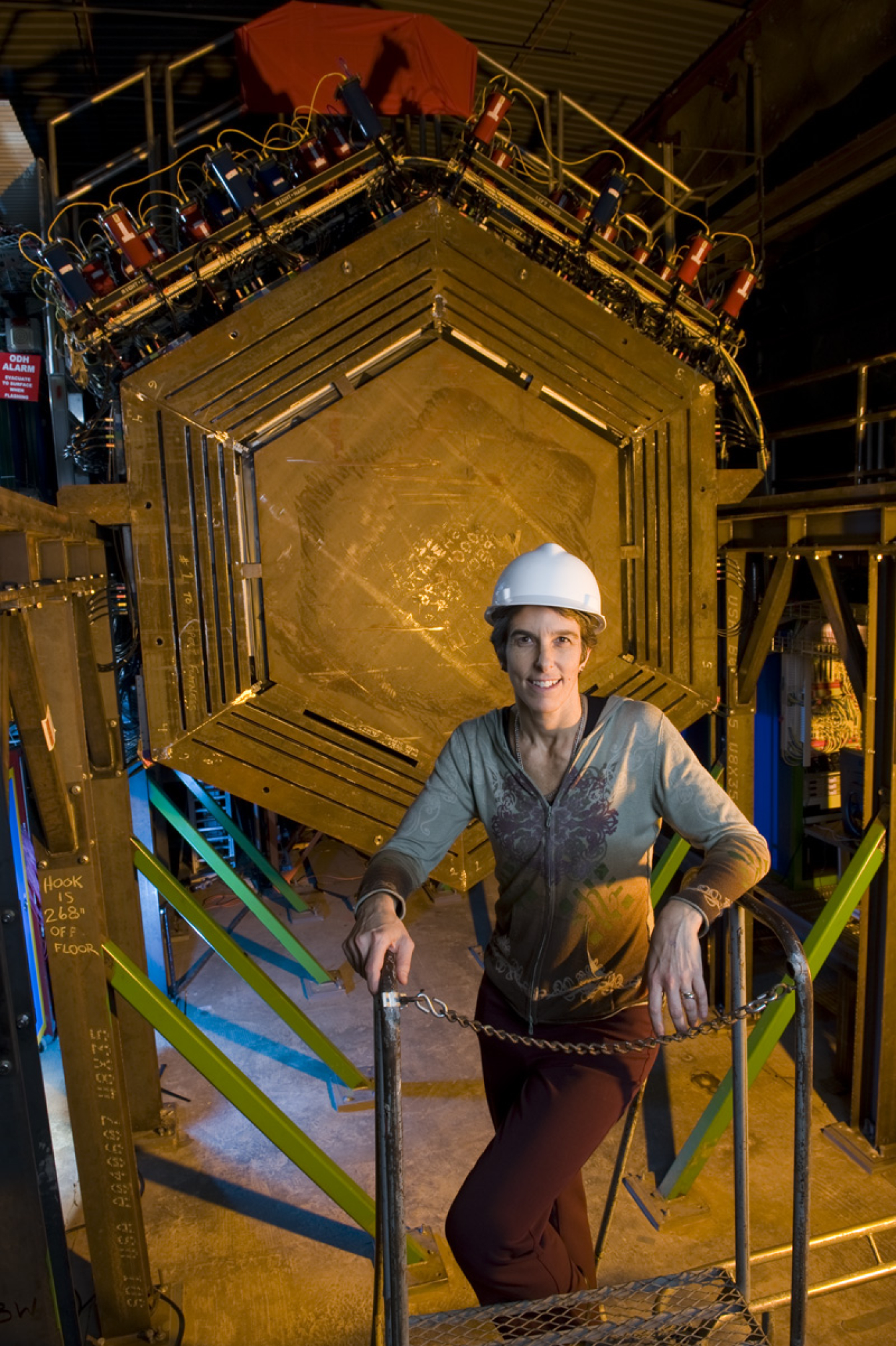Learn why Deborah Harris loves her job as a scientist at Fermilab.
June 11, 2019
Dr. Deborah Harris's current research interest is in the field of neutrino interactions and oscillations. Her work at Fermilab began with NuMI, the beamline that provides neutrinos to the MINERvA experiment, focusing on the beamline monitoring system. After working on both NOvA and MINOS oscillation experiments she realized that both of these experiments would need a better understanding of neutrino interactions in order to fully exploit the planned statistics of the expected data sets. Deborah is currently the co-spokesperson of MINERvA, an experiment whose goal is to measure neutrino interactions on a variety of different nuclei with unprecedented accuracy. In July 2019 Deborah starts as a joint appointment with Fermilab and York University in Toronto, Canada, where she will work on the DUNE experiment, which will bring a new era of precision neutrino oscillation measurements. Deborah received her A.B. in Physics from University of California-Berkeley, and her M.S. and Ph.D. in High-Energy Physics from the University of Chicago. She was appointed as a Research Associate at the University of Rochester for five years, and started working at Fermilab as a staff scientist in 1999. Dr. Harris served as the Project Manager for MINERvA from 2005 through the project's completion in 2010. She has two (now adult) children.
What inspired you to work in STEM?
After my freshman year in college I worked at Fermilab as a student technician making detectors for a particle physics experiment. I was inspired by the idea that I could build something with my own two hands that would detect particles that were invisible to the human eye. I also appreciated the attitude of the physicists I worked for who were doing the research. These people really loved their jobs and were not just doing this to get paid so that they could then go do something fun on the weekend. I didn't realize at the time that this is actually a characteristic of a lot of folks doing research, not just those in particle physics.
What excites you about your work at the Energy Department?
Working on the MINERvA experiment has been exciting for different reasons at different times: I was there for the early design studies and it was exciting to take the detector from early sketches to engineering drawings to a full functioning detector. Then it was exciting to see our first physics results come out of our early data taking. MINERvA switched to a higher energy neutrino beam in 2013 and now it’s exciting to be a part of getting our first results from this new data out in the community. I have been able to see how all of our measurements so far can help the next generation of neutrino experiments, and this makes me want to make that many more interaction measurements. At the same time, I am starting to work on that next generation experiment (DUNE), which is firmly in the engineering drawing stage.
How can our country engage more women, girls, and other underrepresented groups in STEM?
There are three steps, all of which I think need to happen, none of which are sufficient by
themselves:
- Convince these groups that they have the capacity to do work in STEM fields
- Convince these groups that they can lead happy, productive, and financially secure lives working in STEM fields.
- STEM fields have to better accommodate the diverse life situations of all workers. Very few people (outside of the Big Bang Theory) match the image of the rogue scientist beholden to no one.
We all have different lives and different external demands on our time and attention, but it's precisely those differences in experience that STEM fields need to solve their hardest problems.
Do you have tips you'd recommend for someone looking to enter your field of work?
Don't let anyone tell you that you can't do this, and don't let anyone tell you what kind of life you have to have if you do go into (particle) physics. If you like math and if you like figuring out how the world works then you're in the right place.
When you have free time, what are your hobbies?
In my free time I enjoy playing the mandolin, cooking, and camping, and on rare occasions I get to do all of these on the same day. Now that my two kids are in college and grad school, I also enjoy going to visit them and seeing what their lives look like now.
Learn more about our programs & resources for women and girls in STEM at http://www.energy.gov/women

